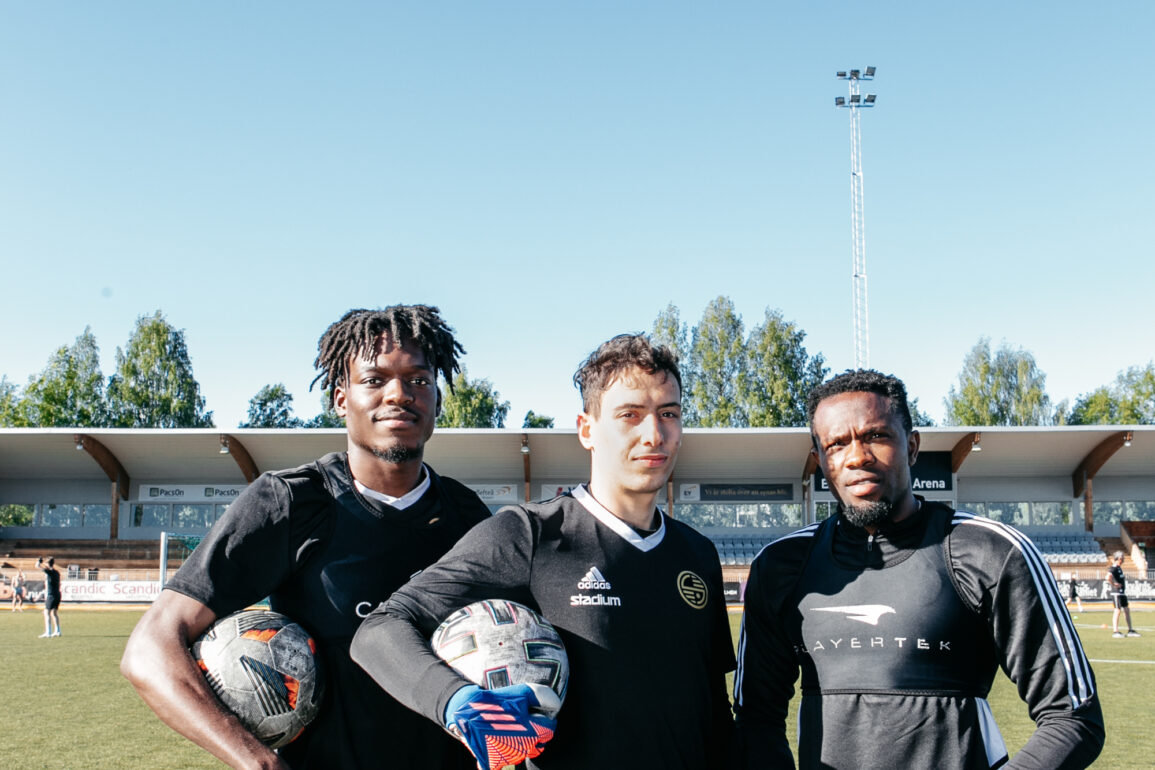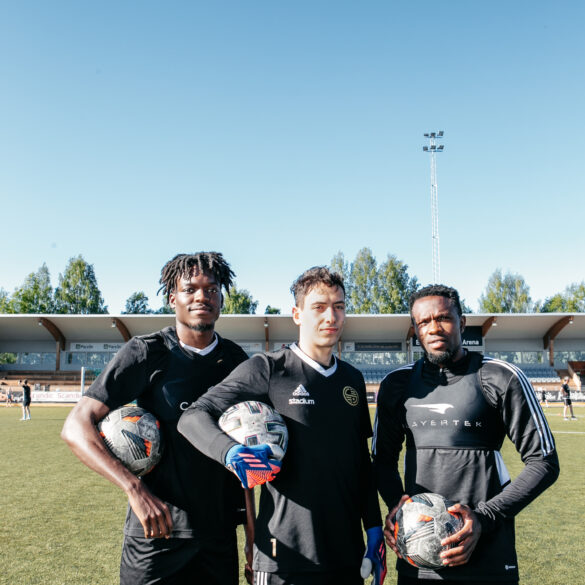The new 2022/2023 football season is starting this month throughout most of Europe, so we thought it would be a good idea to introduce our local football team, Skellefteå FF, who are already more than half their way through the current season. Rehana Lothian reports. Photography by Donna Richmond.
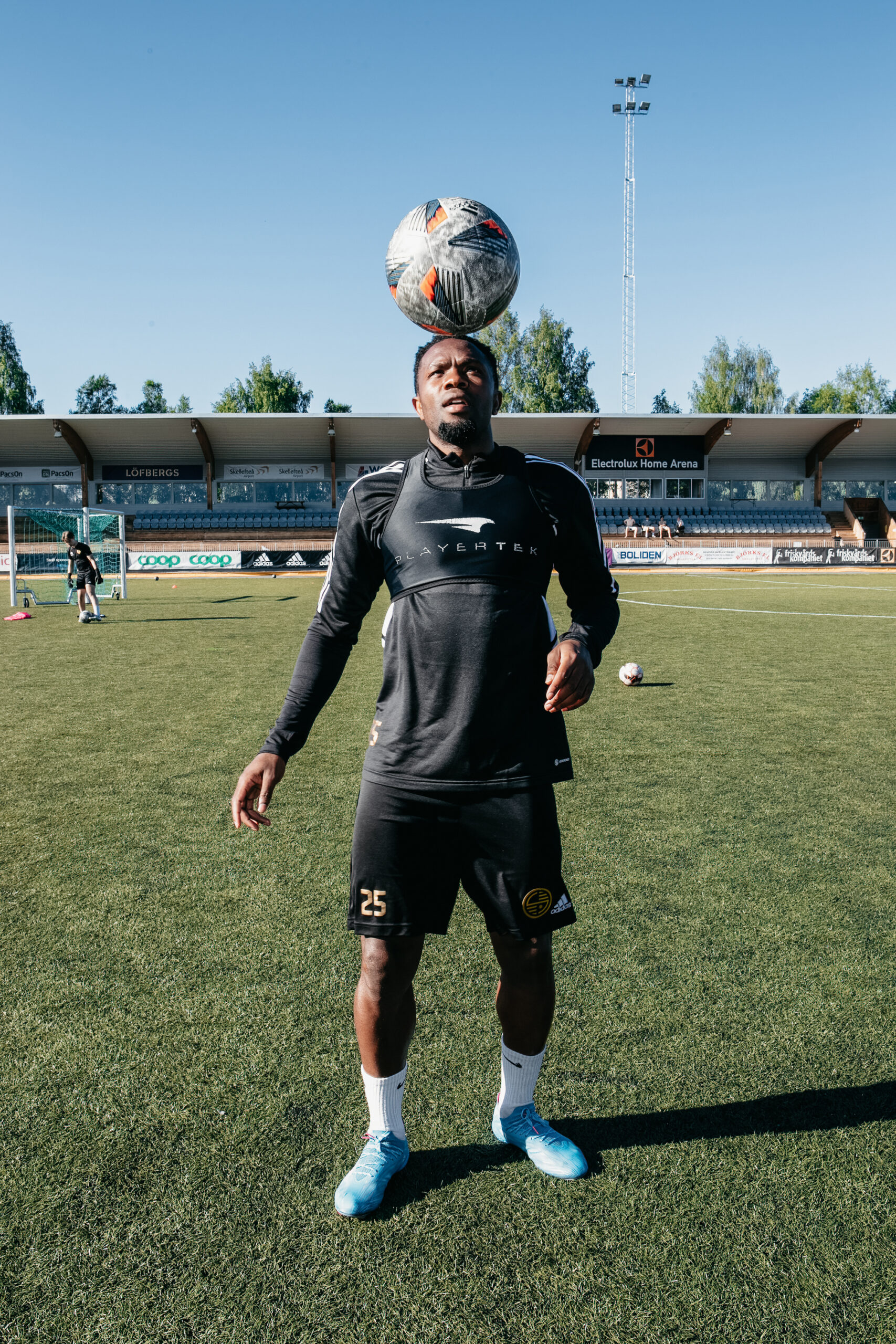
Skelleftea has had a football team since 1921. In 2016, the club changed its name from Skellefteå AIK to Skellefteå FF and started a youth team. It’s a relatively small club but has a very positive outlook, especially now that the city has become a more international place. Many of us are already used to a Saturday afternoon watching football in our home cities and countries. Skelleftea FF is our new home team, so it seemed right that we pay a visit. The squad has players from Skellefteå and across Sweden, and it also has four international players: Ieltsin Camoes, 23, (Portugal), Louis Souffo, 27, (Portugal), Riccardo Brugnoni, 23, (Italy) and Malcom Babel, 29, (France). I spoke to three of the international players to get their thoughts on coming to Skellefteå and also to Mattias Granström, club manager.
THE MANAGER
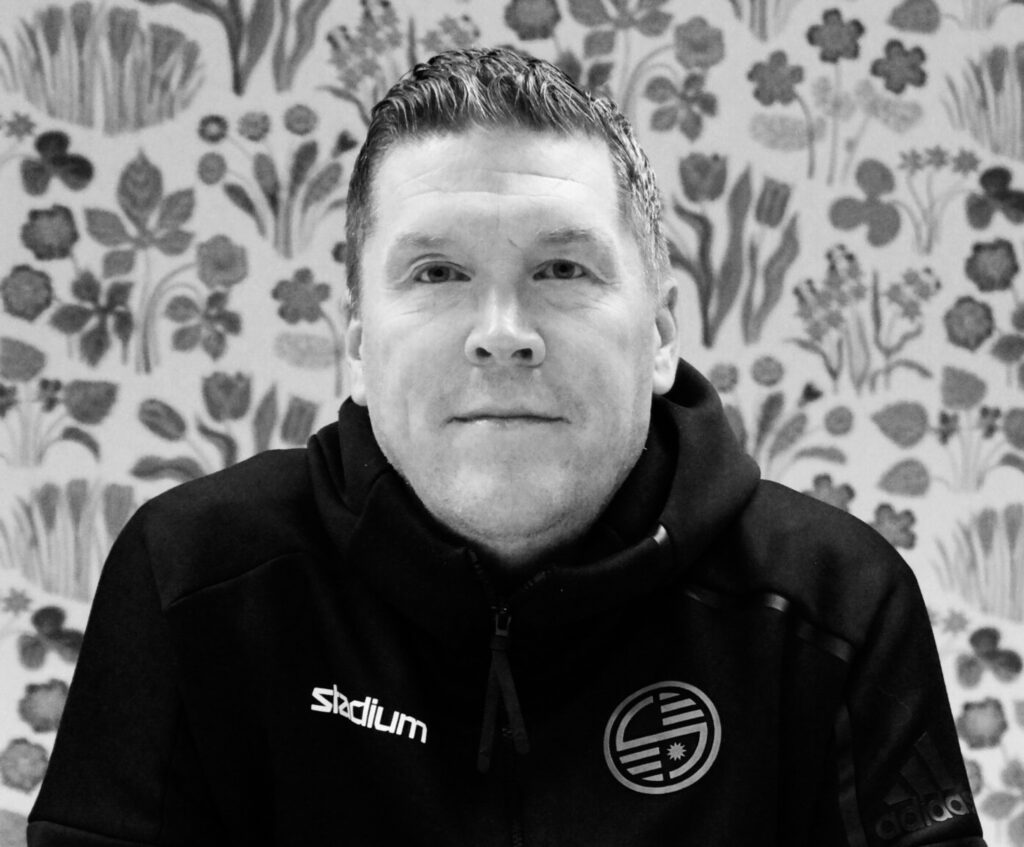
Swedish clubs work differently to the big European outfits such as Manchester City or Real Madrid – unlike those clubs, Skellefteå FF is 51%-owned by members, so volunteers and sponsors are important. When I speak to Mattias, what comes across is the importance he places on the club itself as a community and a place for people to come together. “Of course, the goal is for us to reach higher levels in the football league.” (Currently, Skelleftea are in Division 2, the fourth tier of Swedish football).
FF are assembling the right components for a club in a higher division. “Our goal is also to create a good organization with a positive environment. We need to encourage homegrown talent as well as bringing in good players for the squad. We provide a good football education for kids coming up through the junior teams and give them values that we can be proud of.” For this to work, there will need to be more volunteers willing to put the time in, something many clubs and associations struggle with. Values are important here.
“I think it’s important that the club develops good citizens for Skellefteå. When they are out around town and an accident happens, a player from FF should ask, ‘How can I help you?’ ”
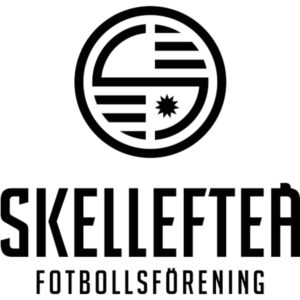
The new logo for the club demonstrates the thinking, including symbols representing the community, the players and the club’s values, “Mod, passion, omsorg”. Meaning, “courage, passion, care.”
In this time of rapid development in the city, it feels like the club is at a turning point also. The future development of the club is very dependent on sponsorship in this funding model. Mattias points out that it’s up to Skellefteå. “What do the companies of Skellefteå want? Is it important that we have a team high up in the league? It’s the biggest sport in the world, so it would be good if Skellefteå newcomers and locals have something to gather around.”
He likens the club’s role to the importance that clubs have in English towns and cities where communities have strong football identities and a lot of pride in their teams. Regarding the international players, Mattias takes the new guys under his wing and gets them settled in. “We try to welcome them as best we can. I take the guys around town in a car and show them where things are, such as the church and the beach. When it comes to entering society, language is important for integration, so they do some SFI. We also help them with finding work and an apartment.”
As with many other industries, Mattias highlights trust an one of the most important aspects of welcoming new talent to the country: “Footballers are a community and when international players leave, we want them to tell other players they know that Skellefteå is a good club. And most importantly we try to keep our promises to them. We don’t promise so much that we can’t deliver.”
THE PLAYERS
Over to the players – our conversation was a lot of fun and I’m happy to report, they were polite gentlemen. I’d call our chat about childhood experiences, Swedish quirks and different cultures, wide-ranging but that might be an understatement. This really was a lovely chat with polite, intelligent young men.
RH: Where are your roots and do you have football in your background?
Louis: I am from Porto in Portugal but my family are from Cameroon and I have been here in Sweden for six months. My father was a player, a striker, and I play at the opposite end of the pitch in defense. One of my uncles played professional football in Portugal; he was the one that supported me in my football career. There are actually a few players in my wider family.
Ricardo: A small city, Perugia in Italy. This is my third season in Sweden and I have been in Skellefteå for six months.
Ieltsin: My roots are mainly in Angola – even though I grew up in Portugal, my cultural roots are Angolan. I don’t have any football background in my family.
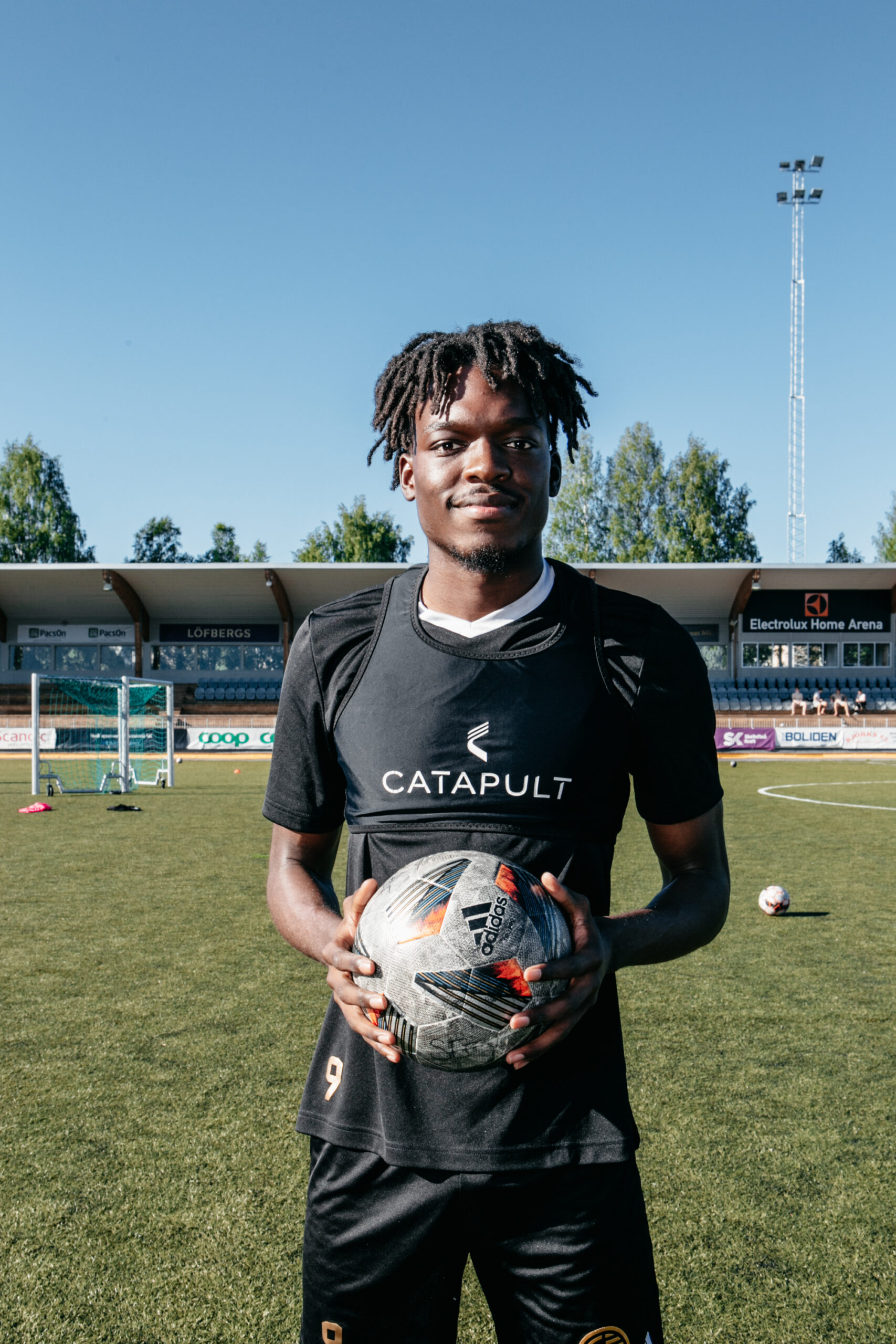
RH: What is your first footballing memory?
Ricardo: I remember playing football with my grandfather at two years old. He was shooting and I was diving on the ball. My grandfather and a little plastic goal.
Louis: Something I will never forget; I was playing a match with other kids and during the game an opponent ran into me. I took a hard blow to the head and people thought I was seriously injured. It was dramatic but I was okay.
Ieltsin: I was four or five. I would make balls out of anything I found on the ground; I even took the heads from dolls to use as a ball! Everyone knew that I had to play football. My mum went to a local club to ask if I could train there. They thought I was too young but my mum persuaded them. The next day was cold and rainy and I went to training. I liked it but I ended up getting pneumonia from my first training session!
RH: Did you have any idea of Skellefteå before you arrived and what did you think when you got here?
Louis: I tried to look at some images of Skelleftea on the internet but I don’t think they reflected what the town is like – it was totally different. It’s a totally different world from what I’m used to, a much smaller place than I’ve ever lived in.
Ieltsin: The same for me – I looked at the pictures on the internet but the reality felt totally different. There is less to do than in a big city but we knew that it might be that way. Also, it was the first time I saw snow.
Ricardo: For me, it’s different because I came from a really small Swedish town in the middle of nowhere, west of Östersund. We played against Skellefteå a few times and this city looks big when you play in a place that’s like a big village. The only downside is it’s too cold in the winter. In April we traveled to a match in a big snowstorm and the bus got stuck!
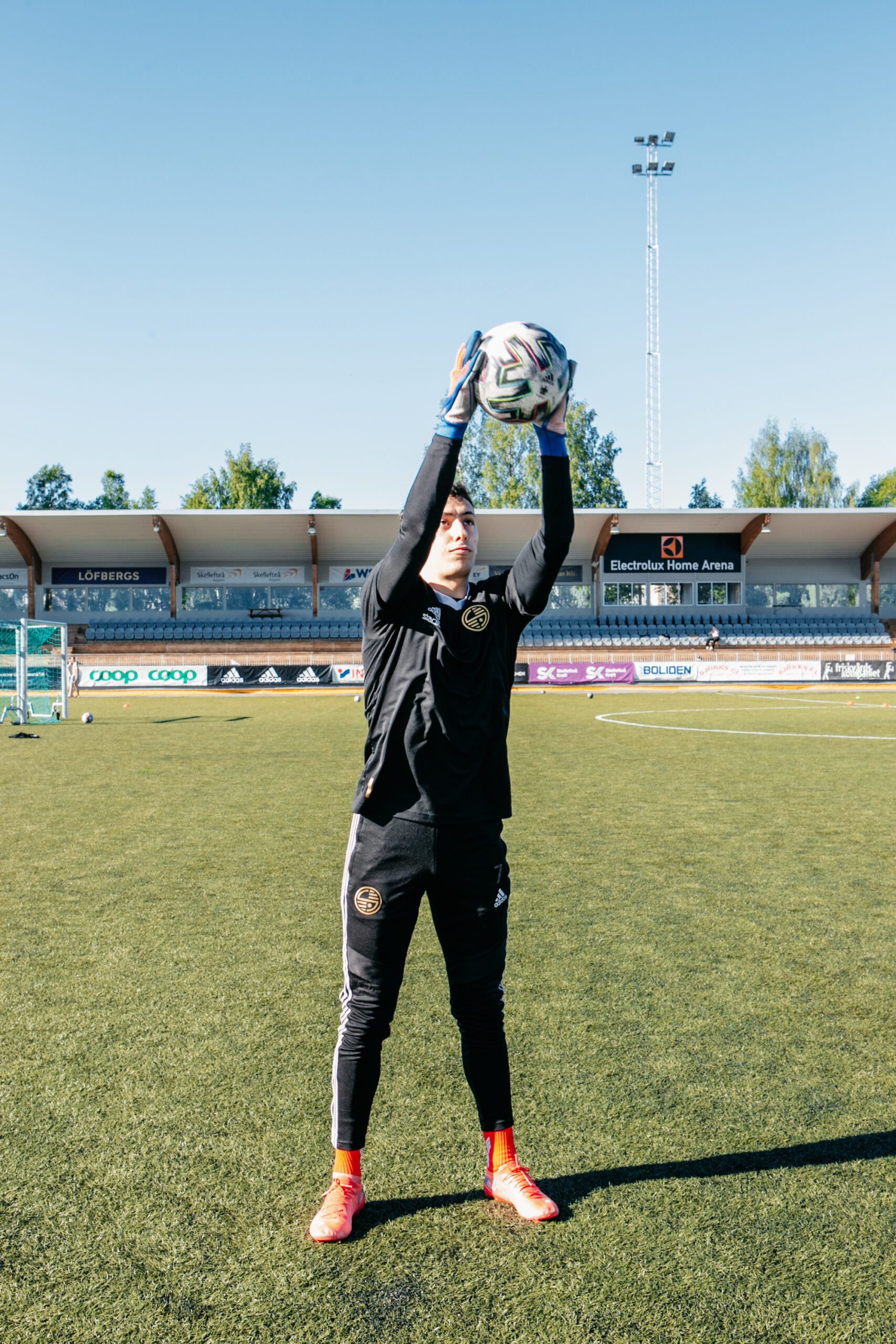
RH: What do you like about Skellefteå?
Ricardo: The summer, if you know where to go, you can go to a lake or a beach.
Ieltsin: For me, the best thing is the way the club treats us.
Louis: Yes, I agree, the management has treated us well from the moment they brought us here, so it feels good to be here. We feel wanted and part of the footballing community here. It’s the most important thing. It is not alwats the way of things. I also like the attitude that there are many things in the municipality that are free to use. Also, even if you are not in the football club, people can still come and use the club’s facilities. It’s the first time I’ve seen that.
Ricardo: Yes and there’s a feeling here, of safety. Kids can walk home alone.
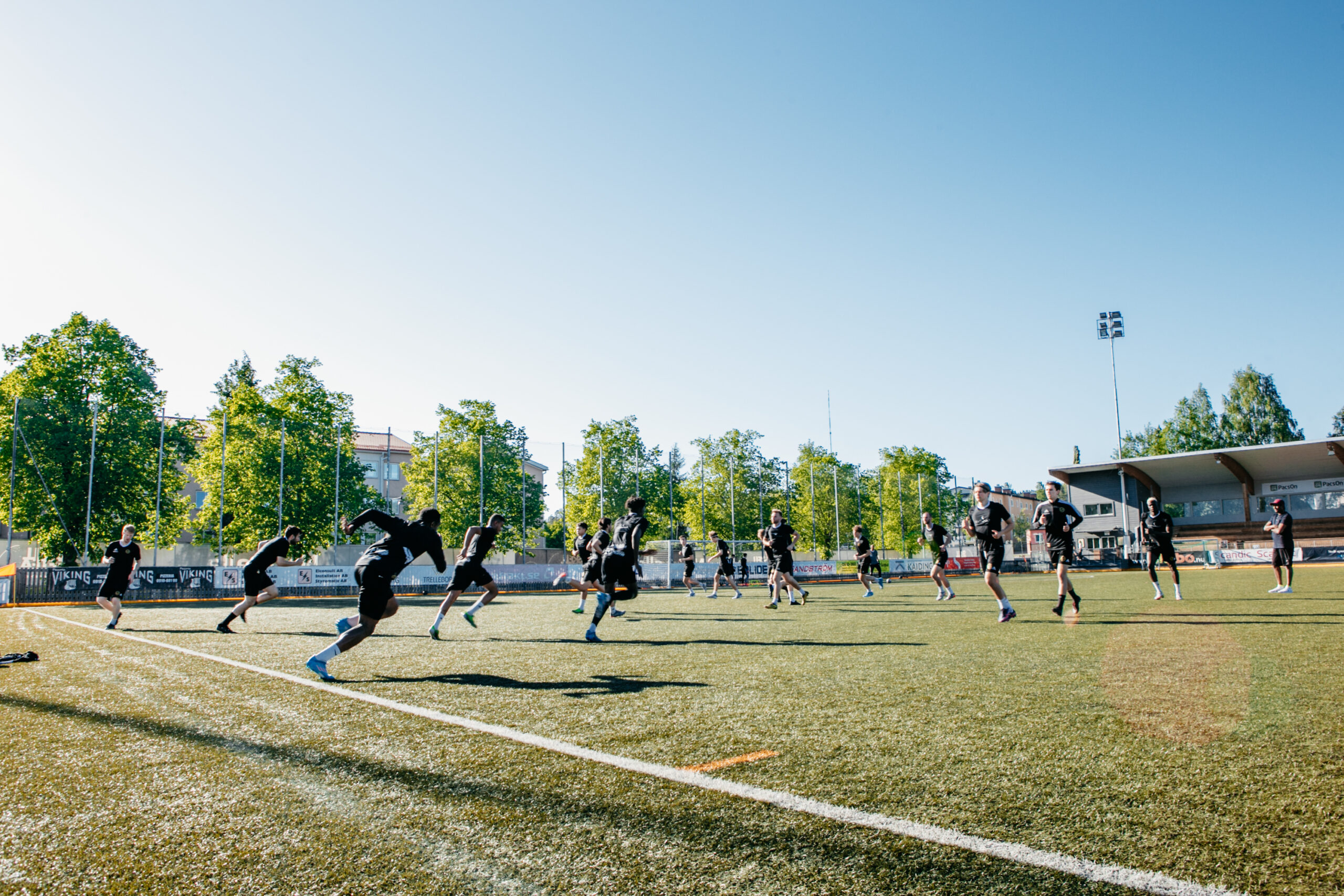
RH: Have you ever tasted surströmming or any other traditional Norrland thing?
Ricardo: I have tasted Västerbotten beef, (moose). Not many things like that. We work and train so we don’t have much time to do much else but rest. If we have holiday time, we fly home to family, so we don’t know so much about Sweden yet.
https://skellefteaff.se/
